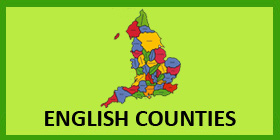




Back to the archives home page

April 2016
THE PURPOSE OF EDUCATION.
The purpose of education, so someone once said, is to turn mirrors into windows. Those windows are permanent fixtures in everybody’s life. As I see it, the
job of a teacher, who I prefer to call a facilitator, is to clean those windows and show what is on the other side while adding their own knowledge
and experiences from life. They should not be forced to keep the curtains closed and just impart a rigid version of what may be there and then have that repeated
as evidence the vision beyond the curtains is now known.
Sometimes, in attempting to achieve consistent educational standards by bringing in a national curriculum, setting targets for students and then utilising
regular testing to monitor achievements, there is little time left, even for those teachers who have cleaned the windows, for curiosity and free thinking. If
teachers are to be judged by how well their pupils perform in a test, there is little choice but to teach to that test. I know of teachers, some of whom have
subsequently left the profession, who felt unable to answer a student’s inquisitive question as that question was outside the knowledge needed for the test.
If the teacher originally had the qualities I discussed in the previous post, including that unique personality, then encumbering them with lesson plans,
individual learning plans, the need to prepare their charges for those tests and the fear of being judged a failure on those results, means their enthusiasm will
begin to wane and that will undoubtedly be reflected in their personality and the role they play. It is not just the pupils who I believe should enjoy their time
in school. Teachers need that feeling just as much.
Teachers are human; in fact, in my opinion, the more human they are, the better teacher they will be. Consequently, having an outsider assessing what they do,
doesn’t breed confidence. A head teacher should be able, indeed trusted, to use their judgement on how one of his teachers is performing but, of course, those head
teachers are themselves being judged by outside assessors too.
We all know of instances where schools have “special” lesson plans for when an OFSTED visit happens. When I first heard this I was both shocked and slightly
disgusted but, on reflection, I think everyone should do it. Any person sitting in on a lesson, even if it was for a few lessons, has no knowledge of the
backgrounds, problems, learning styles, of any of the pupils. All these things should affect a way a teacher acts and performs. It is impossible, totally
impossible, for anyone to make a reasonable, and reasoned, judgement on a teacher’s performance without that knowledge.
By all means have a broad-based check of a school, make sure no harm is coming to any pupil, make sure the necessary systems are in place but, please,
don’t think you can assess a teacher at such a visit. You may notice some passion in all of this. After I had been tutoring my 16 year-olds for about 7 or 8 years
and had been one of the first tutors in the country to get students through the level 3 Business Administration vocational course, I was visited by an assessor.
Suffice it to say, we didn’t get on. I discovered he had never taught anything apart from primary pupils himself and yet he told me I wasn’t handling my students
well. My teaching style, Jack Jaffe influenced, could result in a few harmless, sarcastic comments to my students. I received some back.
On the occasion he was there, one young lady had drifted into her own world during note taking on employment law, not God’s gift to excitement but necessary.
I mentioned that her pen wasn’t a disguised hand grenade and was allowed into contact with the paper in front of her. She replied, immediately, by suggesting I
pick a window as I was leaving. I hadn’t heard this comment before and joined the rest of the group in a few minutes of laughter. We then returned to note taking,
the young lady back in my world.
Afterwards my assessor told me I should never let a pupil talk to me in that way as it resulted in a breakdown of discipline. My reply was along the lines
that these students were adults and I treated them as such; there was not one grain of anger or malice in her comment, her only error being that the room actually
had no windows, she was merely giving as good as she had got and as the purpose of the lesson had been to take notes on employment law and that, after our burst
of laughter, is what had been done, I graded myself as a success. I may also have mentioned I thought he was an idiot and there may well have been some malice in
that. Not only in this case did he lack any knowledge of the background to my little group of students, he also had no experience in the job I was doing which he,
laughably, was supposed to judge.
I have a similar attitude to the publication of test results. To me, they are almost worthless. If you take a very bright child and at the test he or she
achieves a high-grade, you, as the teacher, haven’t really done too much. But if an eight year old started the year in your class unable to read and at the end
of the year has the reading age of a six-year-old, you have made a massive contribution yet the published results would probably lump that pupil in the failed to
achieve category. How can anyone therefore make any sense or judgement on the tables published?
I again speak with some feeling about different levels of achievement at different ages. One of my own children suffered from speech dyspraxia. At the age he
should have started school he could barely be understood let alone learn how to read and write. For the next five years I kept him at home with me and his learning
was tailored to his abilities. With the help of a superb speech therapist, we all worked on his problem. He did loads of maths and I watched videos with him and
discussed history and geography. I read him books and answered, or tried to answer, all his many questions.
He went to school just before his tenth birthday with his speech much improved and beginning to build, rapidly, on the little reading and writing we had done.
Eight months later he passed his 11+ and in 2014 graduated from university with an honours degree in law with history and is already a published writer. I learnt
a lot about the learning process working with him and any sacrifice I may have made in spending so much time with him has been more than been repaid by knowing
who he has become and how he has such a deep love of learning.
My point is though that, even without such learning difficulties, we all learn at different speeds and if you couple this to Professor Gardner’s different
learning styles, it would be an impossible task to get 3 individuals to the same level at a given time, let alone 30 such individuals. And yet, it is on achieving
this impossibility that we seem to judge our teachers and our schools. Do we really want identical robotic beings leaving our education system? I think we know the
answer but that won’t stop me giving my opinion.
James Fenimore Cooper, possibly while finishing off his final hair style (it had to happen, I tried to avoid my surreal humour but failed), said that “all
greatness of character is dependent on individuality. The man who has no other existence than that which he partakes in common with all around him, will never have
any other than an existence of mediocrity”, while Elizabeth Barrett Browning, possibly while counting the different ways to do things, asked “what is genius but
the power of expressing a new individuality?” I think she answered it too. It is this individuality, within reasonable confines, that teachers should seek to
cultivate in the classroom and which, for as long as we seek to set a standard that all should achieve at a defined age, will never happen.
We should want our children, if we really love them and want them to contribute to, and thoroughly enjoy, their adult life, to have, during the 14 or so years
spent in formal education, their natural curiosity heightened and I am not alone in thinking this is the most important skill we should seek to develop.
Eleanor Roosevelt said “I think, at a child’s birth, if a mother could ask a fairy godmother to endow it with one gift, that gift should be curiosity”, while
Anatole France, whilst believing that nine-tenths of education was encouragement (not instruction – my words), also felt that “the whole art of teaching is only the
art of awakening the natural curiosity of young minds for the purpose of satisfying it afterwards”.
One of the greatest thinkers of all time, Albert Einstein, felt that “the important thing is not to stop questioning. Curiosity has its own reason for
existing”. If we concentrate too much on instilling identical facts to be regurgitated in an exam or test, we may, all too easily, stifle curiosity.
It is not as though this is new to our generation. Seven years ago, during a slightly longer than intended stay in Samoa, I came across, in the fale (house)
of an ordinary Samoan, a book about Einstein with examples of many of his speeches. He had pronounced, on one occasion, that the only thing which interfered with
his learning was his education, adding, on another, that he felt “it is a miracle that curiosity survives a formal education”.
It is, then, learning, and the inherent curiosity, that we must encourage through education not education that is vital for learning. In later life, a
qualification, if you choose to seek one, is of far greater use if the person who obtains it has also been encouraged to think but that level of thinking is
still possible in someone without the piece of paper. Indeed, the people who seem to invent the most, the inquisitive ones, those that think outside the box,
are often those with the least paper qualifications.
Primary education, and all of us involved in it, has the greatest influence, along with parental time, on the lives of future generations. Babies are born
with natural curiosity and also the enthusiasm for finding out. Therefore, young people should be allowed to use that natural enthusiasm, tempered with our
control, express their curiosity under our guidance and be encouraged to create their own ideas coupled to our experiences. That is how we will foster discovery
in all forms for, if the next generation do not challenge our ideas and make new discoveries, no progress will be made even though I, as an old fogey, do sometimes
worry about where that progress may be taking us.
“The real voyage of discovery consists not in seeking new landscapes but in having new eyes”, according to Marcel Proust. Each young person has new eyes,
fresh eyes, to allow them to challenge and question established views but they will only do that if we encourage such thinking. The Hungarian scientist,
Albert Szent Gyorgyi, proclaimed that “discovery consists of seeing what everybody has seen and thinking what nobody has thought”. However, our young people
will only do that if we encourage free thinking. Everyone can see something different through that window of education. We should never try to regulate the view.
Young people need a broad-based education tying high standards to free-thinking, curricula to inquisitive learning. They do not need to be rigidly taught;
they need their learning to be facilitated. That is the role of the modern teacher. I mentioned in an earlier post that I felt young Gove, when Minister of
Education, didn’t understand the culture in which modern education takes place. It was only convention to sit in a classroom and repeat what you had been told
because the source that told you, the text-book or the teacher, was not available elsewhere. Now information is everywhere and the ability to communicate and
oversee a learner is not just limited to within a classroom. A teacher has now become the researcher, finding the information; the editor, making sure the scene
is clear and the producer, turning it into something from which not only knowledge will be gained but also curiosity. The anticipation of the next episode remains.
And finally in this post, never underestimate the role education plays in our lives. From two opposite ends of civilisation we can hear this view. Aristotle,
who I don’t think ever sat his students behind desks in lines, felt that “all who have meditated on the art of governing mankind have been convinced that the fate
of empires depends on the education of youth”, while, far more recently and quoted in my introduction, the late Nelson Mandela said that “education is the most
powerful weapon that can be used to change the world”.
I think you now know where I stand with regard to modern learning but, there are dangers and I will talk about these next.
![]()

